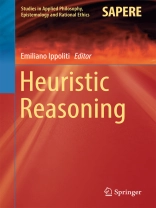How can we advance knowledge? Which methods do we need in order to make new discoveries? How can we rationally evaluate, reconstruct and offer discoveries as a means of improving the ‘method’ of discovery itself? And how can we use findings about scientific discovery to boost funding policies, thus fostering a deeper impact of scientific discovery itself?
The respective chapters in this book provide readers with answers to these questions. They focus on a set of issues that are essential to the development of types of reasoning for advancing knowledge, such as models for both revolutionary findings and paradigm shifts; ways of rationally addressing scientific disagreement, e.g. when a revolutionary discovery sparks considerable disagreement inside the scientific community; frameworks for both discovery and inference methods; and heuristics for economics and the social sciences.
Inhaltsverzeichnis
Reasoning at the frontier of knowledge: Introductory essay.- Why should the logic of discovery be revived? A reappraisal.- Are Heuristics Knowledge-Enhancing?Abduction, Models, and Fictions in Science.- Heuristic Appraisal at the Frontier of Research.- Why do Scientific Revolutions begin?.- Withstanding Tensions: Scientific Disagreement and Epistemic Tolerance.- Heuristics as Methods: Validity, Reliability and Velocity.- Dynamic generation of hypotheses: Mandelbrot, Soros and Far-From-Equilibrium.












